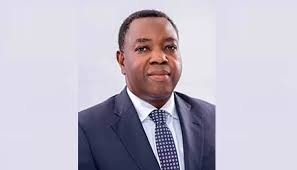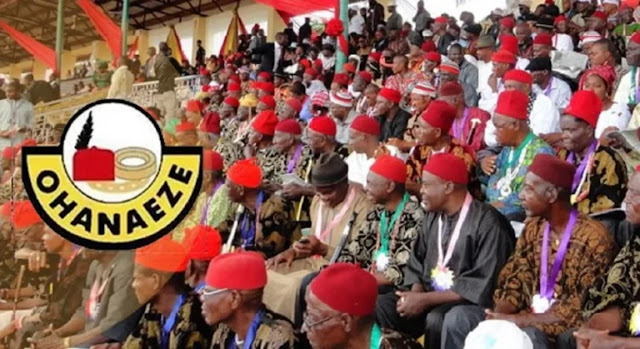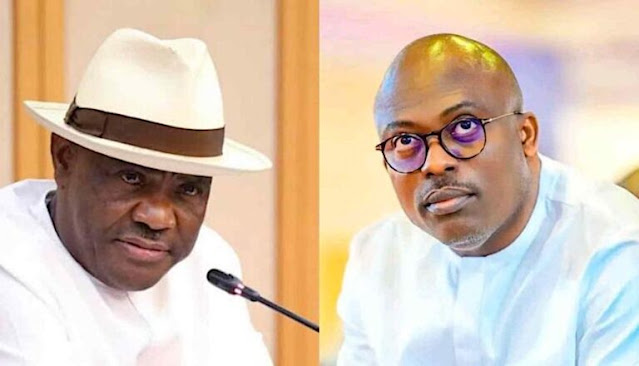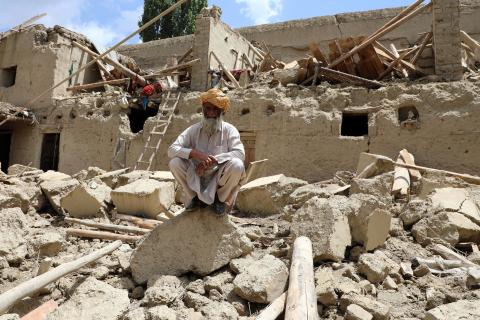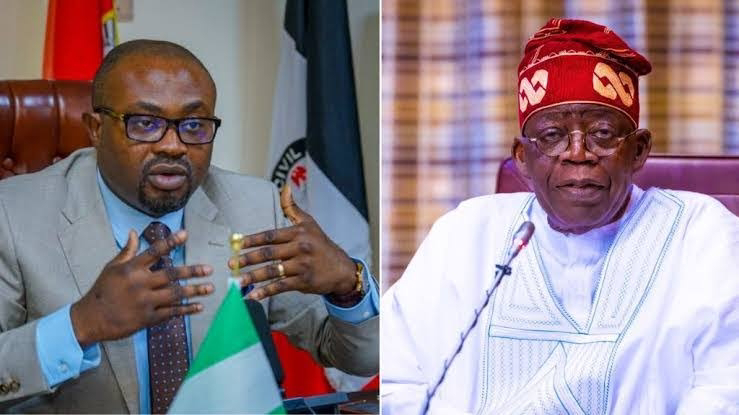As the race for the 2026 Ekiti State governorship election intensifies, the All Progressives Congress (APC) is grappling with internal tensions over the selection of its candidate. On August 25, 2025, the APC’s National Secretary, Surajudeen Basiru, issued a stern warning to aspirants, including prominent contender Engr. Kayode Ojo, that there would be “no room for imposition” in the party’s primary process. The statement, made in response to Governor Biodun Oyebanji’s alleged attempts to suppress other aspirants, underscored the party’s commitment to a free and fair primary election scheduled for October 27, 2025. This article delves into the controversy surrounding the APC primary, the key players involved, the accusations of imposition, and the broader implications for Ekiti State’s political future as it navigates a critical juncture in its governance.
The Context: Ekiti’s Political Landscape
Ekiti State, located in Nigeria’s Southwest geopolitical zone, is a small but politically significant state known for its educated populace and vibrant political culture. With a population of approximately 3.5 million and a land area of 6,353 square kilometers, Ekiti is often described as the “Fountain of Knowledge” due to its high literacy rates and history of producing intellectuals and political leaders. However, the state has faced challenges in translating its human capital into sustainable economic growth, with issues like unemployment, infrastructure deficits, and poverty remaining persistent concerns.
The 2026 governorship election is a pivotal moment for Ekiti, as it will determine the successor to Governor Biodun Oyebanji, who is seeking a second term after assuming office in 2022. Oyebanji, a member of the APC, has been praised for his developmental strides, particularly in education, infrastructure, and agriculture, but his tenure has not been without criticism. Opponents, including Kayode Ojo, have accused him of alienating grassroots party members and mismanaging state resources, setting the stage for a contentious primary battle within the APC.
The APC, which has governed Ekiti since 2018 under former Governor Kayode Fayemi and now Oyebanji, faces the challenge of maintaining unity ahead of the 2026 election. The party’s dominance in the state is not guaranteed, as the Peoples Democratic Party (PDP) and emerging parties like the Social Democratic Party (SDP) are positioning themselves to capitalize on any internal divisions. The warning from APC National Secretary Surajudeen Basiru reflects the party’s recognition of the need for a transparent primary process to avoid a repeat of past controversies, such as the 2022 primary, which was marred by allegations of imposition and fraud.
The Controversy: Allegations of Imposition
The heart of the current controversy lies in Governor Oyebanji’s alleged attempts to stifle competition in the APC primary. On August 23, 2025, while receiving his APC expression of interest and nomination forms—purchased by the Ekiti State University Alumni Association for N50 million—Oyebanji reportedly made a provocative statement. “I want to see the local government chairman and the ward chairman of APC that will open their doors and offices for these people (aspirants),” he said, according to allAfrica.com. “I want to know the party member that will receive them.” The remarks were interpreted as a threat to party officials who might support other aspirants, prompting a swift rebuke from Basiru and other party leaders.
Basiru’s response, delivered during a press conference in Abuja, was unequivocal: “There is no room for imposition in the APC primary for the Ekiti governorship election. The process will be free, fair, and transparent, and we will not tolerate any attempts to undermine the democratic will of our members.” The statement was directed not only at Oyebanji but also at aspirants like Kayode Ojo, who have accused the governor of using his influence to manipulate the primary process. Basiru’s warning underscored the APC’s desire to avoid the mistakes of the 2022 primary, which saw seven aspirants, including Ojo, withdraw in protest over alleged rigging to favor Oyebanji.
The 2022 primary, held on January 27, 2022, was a flashpoint in Ekiti’s political history. Seven aspirants—Kayode Ojo, Opeyemi Bamidele, Dayo Adeyeye, Femi Bamisile, Bamidele Faparusi, Demola Popoola, and Afolabi Oluwasola—alleged that the process was manipulated to ensure Oyebanji’s victory, with the support of then-Governor Kayode Fayemi. They accused the primary election committee, led by Jigawa State Governor Mohammed Badaru, of using loyalists of Fayemi as returning officers and concocting results without conducting a proper election. The controversy led to protests at the APC secretariat in Ado-Ekiti and calls for the cancellation of the primary, which Oyebanji won with 101,703 votes.
The echoes of 2022 resonate in the current race, with Ojo and others wary of a repeat. Ojo, speaking through his campaign team led by Olukayode Oluyemo, described Oyebanji’s comments as “ludicrous” and a violation of the APC’s constitution and Nigeria’s 1999 Constitution, specifically Article 9(3) and Section 40, respectively. “This threat aptly demonstrates that the governor intends to turn the APC into his private fiefdom and family inheritance,” Oluyemo stated at a press conference in Ado-Ekiti on August 24, 2025. The campaign team also accused Oyebanji of orchestrating attacks on Ojo’s supporters in areas like Moba, Igede, Irepodun/Ifelodun, and Ado-Ekiti, including arrests on trumped-up charges like armed robbery and kidnapping.
The Aspirants: Kayode Ojo and the Contenders
Kayode Ojo, a construction magnate and the Pro-Chancellor of the University of Nigeria, Nsukka, is a formidable contender in the APC primary. A native of Ekiti, Ojo has a history of political ambition, having contested the 2018 and 2022 APC primaries, where he finished third behind Fayemi and Segun Oni in 2018 and withdrew in 2022 over allegations of fraud. His campaign for 2026 is built on a platform of transformative change, with a focus on human capital development, agricultural reform, and infrastructure improvement. Ojo’s team has outlined a “bold and transformative vision” to position Ekiti as a global destination, emphasizing education, vocational training, and agribusiness to drive economic growth.
Ojo’s candidacy has garnered significant support, notably from Mrs. Monica Adesola Olajuyigbe, the daughter of the late Colonel Adekunle Fajuyi, Nigeria’s first military governor of the old Western Region. In a statement, Olajuyigbe declared her alignment with Ojo as “rooted in legacy,” citing his commitment to restoring confidence and delivering good governance. She criticized Oyebanji for alienating grassroots leaders and disregarding party loyalty in appointments, echoing Ojo’s narrative of a disconnected administration.
Other aspirants in the race include incumbent Governor Biodun Oyebanji and human rights activist Hon. Abimbola Olajumoke. Oyebanji, backed by the Ekiti State University Alumni Association, is campaigning on his record of infrastructure development, including road construction, school rehabilitation, and rural electrification. His supporters argue that his first term has laid a foundation for sustainable growth, with transparent financial management and adherence to the Open Government Partnership (OGP) commitments. However, critics, including Ojo’s camp, have challenged these claims, alleging mismanagement of over ₦286.23 billion in federal allocations and ₦70 billion in internally generated revenue.
Olajumoke, who personally purchased his nomination forms, has promised to transform Ekiti’s political and economic landscape. His candidacy appeals to those seeking a fresh perspective, though he lacks the political machinery of Oyebanji or Ojo. The presence of multiple aspirants underscores the competitive nature of the primary, but it also raises the risk of division if the process is perceived as unfair.
The APC’s Response: A Push for Transparency
The APC’s national leadership, aware of the potential for discord, has taken steps to ensure a transparent primary process. Basiru’s warning against imposition was accompanied by a call for all aspirants to adhere to party guidelines and engage in issue-based campaigns. The party has set October 27, 2025, as the date for the primary, with the national executive committee overseeing the process to prevent manipulation. The APC’s constitution mandates a direct primary, where party members vote directly for their preferred candidate, a method intended to enhance transparency but which proved controversial in 2022.
The national leadership’s intervention is also a response to broader concerns about party unity. The APC’s dominance in Ekiti is a key factor in its Southwest strategy, particularly as it seeks to maintain its grip on the region ahead of the 2027 general elections. A fractious primary could weaken the party’s chances against opposition parties like the PDP, which is looking to capitalize on any missteps. The memory of 2022, when aggrieved aspirants threatened legal action and boycotted the process, looms large, and the APC is keen to avoid a repeat.
The Broader Implications: Ekiti’s Political Future
The controversy over the APC primary has significant implications for Ekiti’s political future. A free and fair primary could strengthen the party’s unity and position it to retain the governorship in 2026. However, any perception of imposition or rigging could alienate grassroots members and fuel defections to opposition parties. Ojo’s campaign, with its emphasis on grassroots engagement and economic transformation, has resonated with some party members, but his confrontational stance against Oyebanji risks deepening divisions.
For Oyebanji, the challenge is to balance his desire for a second term with the need to maintain party unity. His comments about restricting access to party offices were likely intended to project strength, but they have backfired, drawing criticism from both within and outside the APC. The Ekiti State government, in a statement on August 27, 2025, denied allegations of mismanagement and attacks on Ojo’s supporters, calling them “false, misleading, and entirely unsubstantiated.” The government also challenged Ojo’s claim of donating a N80 million fire service station to the Ekiti Agro-Allied International Cargo Airport, asserting that no such contribution was recorded.
The broader political context in Nigeria adds another layer of complexity. The APC’s dominance in the Southwest is under scrutiny, with opposition parties gaining ground in states like Osun and Oyo. Ekiti, traditionally an APC stronghold, is a critical battleground, and the outcome of the 2026 election will have implications for the party’s regional strategy. The controversy also highlights the challenges of godfatherism in Nigerian politics, where powerful figures like Fayemi and Oyebanji wield significant influence over party structures, often at the expense of democratic principles.
The Path Forward: Challenges and Opportunities
As the October 27, 2025, primary approaches, the APC faces the task of balancing ambition with unity. For Kayode Ojo, the primary is an opportunity to challenge Oyebanji’s dominance and present himself as a viable alternative. His campaign’s focus on human capital development and agricultural reform aligns with Ekiti’s needs, but he must overcome perceptions of being a perennial contender who lacks the political clout to unseat an incumbent.
For Oyebanji, the primary is a test of his ability to consolidate support while addressing criticisms of his administration. His record of development projects, including over 4,000 hectares of prepared farmland and investments in youth agriculture, provides a strong platform, but he must navigate accusations of elitism and disconnection from the party’s base.
For Ekiti’s residents, the outcome of the primary will shape the state’s trajectory. The state’s challenges—unemployment, infrastructure deficits, and poverty—require a governor who can deliver inclusive growth. The APC’s ability to conduct a transparent primary will determine whether it can present a united front in 2026 or risk ceding ground to the opposition.
Conclusion
The warning from APC National Secretary Surajudeen Basiru against imposition in the Ekiti governorship primary reflects the high stakes of the 2026 election. The controversy surrounding Governor Biodun Oyebanji’s alleged attempts to suppress aspirants like Kayode Ojo has reignited memories of the contentious 2022 primary, raising concerns about party unity and democratic integrity. Ojo’s campaign, with its vision of transformative change, has gained traction, but his confrontational approach risks further polarizing the APC.
As Ekiti prepares for the October 27, 2025, primary, the APC must navigate a delicate balance between ambition and unity. A transparent and fair process could strengthen the party’s position, while any hint of manipulation could fracture its base and embolden the opposition. For Ekiti’s residents, the election is an opportunity to choose a leader who can address the state’s pressing challenges and build on its potential as the “Fountain of Knowledge.” The coming months will be critical in determining whether the APC can rise above internal divisions to deliver a candidate who represents the aspirations of Ekiti’s people.


